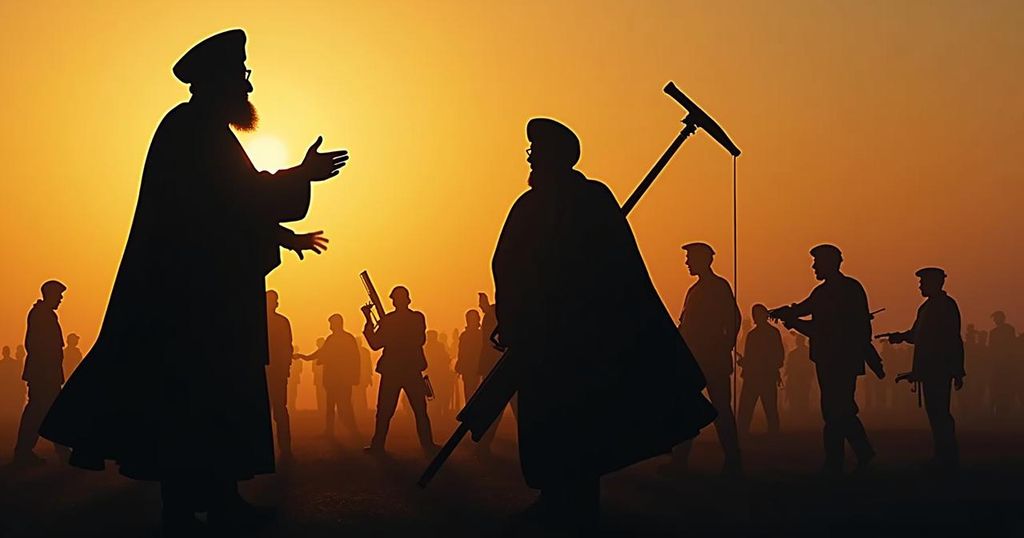Hassan Nasrallah has led Hezbollah for three decades, transforming it into a powerful paramilitary force in the Middle East. Under his leadership, Hezbollah has engaged in wars against Israel and supported the Syrian government. His pragmatic yet fiery oratory has garnered him considerable support among Shiites in Lebanon and beyond, while maintaining a position of caution due to threats against him. As the Israel-Hamas conflict escalates, Nasrallah’s leadership and military actions continue to draw international attention and scrutiny.
In the realm of Middle Eastern politics, Hassan Nasrallah’s leadership of Hezbollah has been pivotal over the past thirty years, transforming the group into a formidable paramilitary organization. The Lebanese militant group witnessed its prominence heighten through various conflicts, notably its wars against Israel and its involvement in the Syrian civil war, which tilted the power dynamic in favor of President Bashar Assad. Nasrallah, a charismatic and astute strategist, has established Hezbollah as Israel’s principal adversary, fostering alliances with Iran’s Shiite leaders and Palestinian movements such as Hamas. His esteemed status among Lebanese Shiites and admiration across the Arab and Islamic world can be attributed to his clerical lineage, denoted by the title “sayyid.” Despite being perceived as an extremist in Western circles, his pragmatic approach contrasts sharply with earlier, more radical elements of Hezbollah. Born in 1960 into a lower-class Shiite family in Beirut, Nasrallah’s formative years coincided with Lebanon’s civil war. His theological studies and subsequent involvement in the Amal movement paved the way toward his role in founding Hezbollah, an organization established by Iranian Revolutionary Guards in 1982. Following the assassination of Hezbollah’s prior leader, Abbas Musawi, Nasrallah ascended to the position of secretary-general in 1992, soon after which the United States designated Hezbollah a terrorist entity. Under Nasrallah’s leadership, Hezbollah successfully orchestrated a campaign that culminated in Israeli withdrawal from southern Lebanon in 2000, enhancing his reputation significantly within Lebanon and the wider Arab region. His status was further solidified during the 2006 war with Israel, which concluded in a stalemate, showcasing Hezbollah’s military capabilities. As the Syrian civil war erupted in 2011, Hezbollah intervened on behalf of Assad’s forces, a decision that initially diminished its popularity but nevertheless solidified its role as part of Iran’s Axis of Resistance. Currently, amidst escalating tensions following the Israel-Hamas conflict that began on October 7, 2023, Nasrallah has authorized attacks on Israeli military positions, positioning Hezbollah as a significant player in the broader conflict, while maintaining a defiant stance against Israeli operations targeting Hezbollah commands.
Hassan Nasrallah has led Hezbollah since 1992 and has been a key figure in shaping the group’s strategies against Israel and in regional conflicts, particularly in Syria. His leadership has turned the group into a critical component of Iran’s influence in the Middle East, establishing alliances that redefine political and military dynamics in the region. The Israeli military’s ongoing operations against Hezbollah, notably in Beirut, underscore the persistent conflict involving the group, and further illustrate the complexities of Nasrallah’s influence as a leader.
Hassan Nasrallah’s ascension to the leadership of Hezbollah highlights the intricate relationship between local political movements and broader geopolitical conflicts. His ability to leverage charismatic leadership and strategic alliances has not only reshaped Hezbollah but has also marked him as a key influencer in the balance of power in the Middle East. As current hostilities intensify, his role in continuing the group’s resistance against Israel demonstrates the ongoing significance of his leadership in the region’s turbulent landscape.
Original Source: apnews.com







